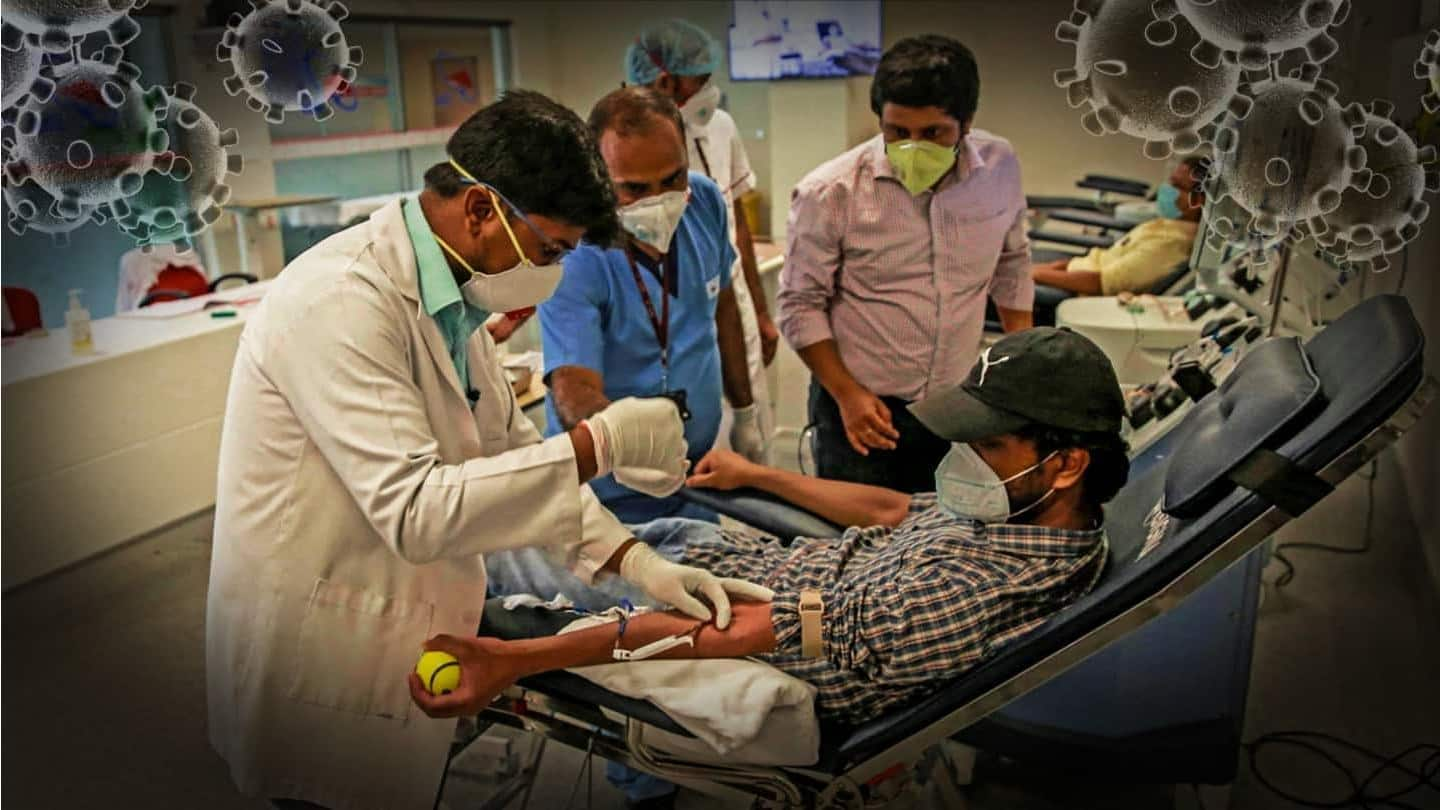
ICMR drops convalescent plasma therapy from COVID-19 treatment guidelines
What's the story
The use of convalescent plasma therapy has been dropped from the recommended treatment guidelines for COVID-19 in India, as per an advisory from the Union Health Ministry on late Monday.
The decision by the AIIMS-ICMR (All India Institute of Medical Sciences-Indian Medical Council of Research) National Task Force indicates that convalescent plasma offers no therapeutic benefits in patients admitted to hospitals for COVID-19 treatment.
Information
What does convalescent plasma mean?
Plasma is the clear liquid portion of blood that remains after red and white blood cells, platelets, and other cellular components have been removed. Convalescent plasma extracted from the blood of patients recovering from an infection is a source of antibodies against that particular infection.
Reasons
National Task Force members cited 'ineffectiveness, inappropriate use'
In a meeting of the National Task Force on Friday, members were in favor of removing the use of convalescent plasma from the Clinical Guidance for Management of Adult COVID-19 Patients, reportedly citing its ineffectiveness and inappropriate use in several cases.
Guidelines on recommended modes of treatment are updated periodically by the National Task Force. Registered doctors anywhere, however, aren't bound by these recommendations.
Trial
No benefit of plasma therapy in reducing mortality: Lancet study
The decision comes shortly after findings of the RECOVERY trial - the largest randomized trial to report results of the effect of convalescent plasma in hospitalized COVID-19 patients - were published in medical journal The Lancet on May 14.
In a double-blinded trial involving about 5,000 patients in the UK, no benefit of the treatment was found in reducing mortality or improving patient outcomes.
Indian trial
Indian trial raised concerns about concentration of antibodies in plasma
In fact, last year, findings of India's largest trial, PLACID, reported that convalescent plasma was not associated with reducing progression of severe COVID-19 or all-cause mortality.
Subsequently, the ICMR had issued an evidence-based advisory emphasizing that convalescent plasma with a low concentration of specific antibodies against SARS-CoV-2 may be less beneficial in COVID-19 treatment, when compared to plasma with high concentration of such antibodies.
Criteria
Despite trial's findings, plasma remained in ICMR's COVID-19 treatment guidelines
Despite the findings of the ICMR trial, plasma therapy continued to find a place in the recommended guidelines for COVID-19 treatment, in 'off-label' use.
The therapy was recommended when two specific criteria were met: once for early moderate disease, preferably within seven days of symptoms, and no use after seven days; and the availability of donor plasma with a high concentration of antibodies.
Scientists
Recently, Indian scientists warned against the use of plasma therapy
However, last week, several scientists had written to Principal Scientific Advisor Dr. VijayRaghavan, warning against the "irrational use" of the procedure in the country.
"The off-label tag proves that regulators themselves aren't fully convinced. The authorities know that it doesn't work. Off-label, itself means not approved, yet it exists as an oxymoron," said Vivekananda Jha, one of the signatories of the open letter.
Other treatments
Other COVID-19 treatment methods that are under the scanner
Meanwhile, the ICMR guidelines continue to recommend Ivermerctin and Hydroxychloroquine for mild disease, but have underlined that both drugs had "low certainty of evidence."
Last week, the National Task Force flagged the misuse of steroids, which can diminish the natural immunity of the body, as it can increase the likelihood of black fungal infections causing deaths among COVID-19 patients.